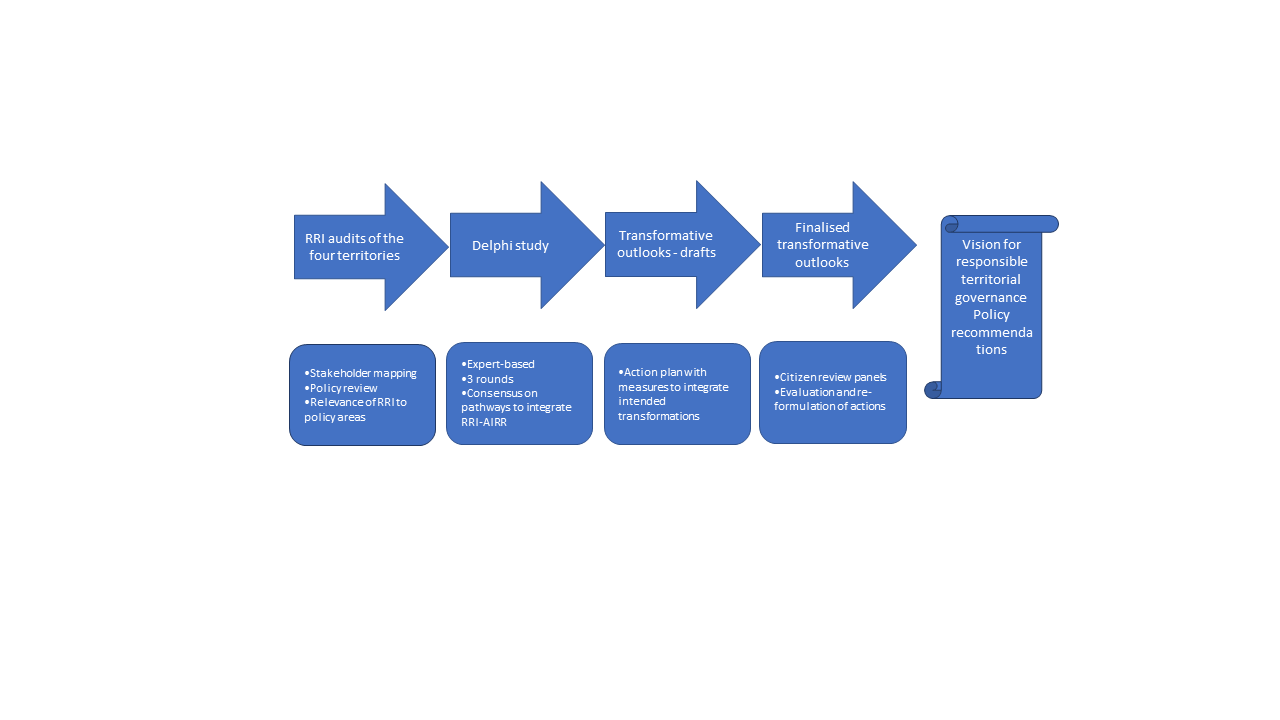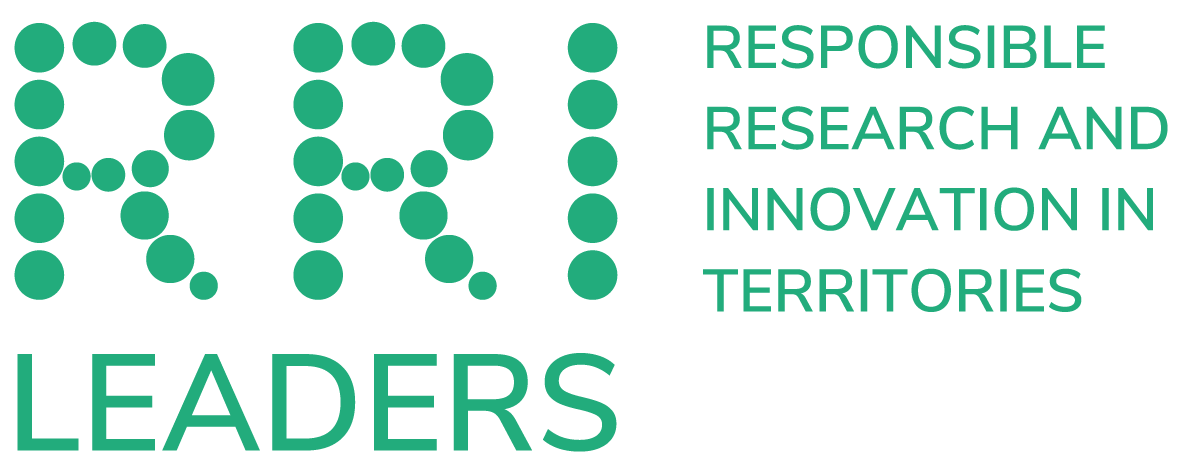RRI-LEADERS: experience and achievements in a nutshell

Introduction
The main goal of RRI-LEADERS was to facilitate the adoption of RRI principles within territorial governance in four European territories: Region of Western Macedonia, Greece; City of Sabadell, Spain; Municipality of Thalwil, Switzerland; and Sofia Municipality, Bulgaria. To attain this goal, the partners developed and applied a novel multi-stage, multi-actor co-creation approach, which resulted in the following major achievements: four territorial Transformative Outlooks, a Vision for Responsible Territorial Policymaking and Policy Recommendations to Different Levels of Governance.
Ambition
RRI-LEADERS started in January 2021, bringing together nine partners from five European countries. The ambition of the consortium was to assess the relevance of the responsible research and innovation (RRI) principles (public engagement, gender equality, ethics, open access and science education) and dimensions (anticipation, inclusiveness, reflexivity and responsiveness) for territorial governance, and to facilitate their integration in important policy areas in the four participating territories, as follows:
▸ Region of Western Macedonia, Greece: energy transition;
▸ Municipality of Thalwil, Switzerland: energy transition;
▸ Sofia Municipality, Bulgaria: support for innovation, youth employment and entrepreneurship, sustainable urban development, digital skills;
▸ City of Sabadell, Spain: active ageing and smart specialisation.
RRI-LEADERS’ approach
The consortium partners designed and applied a common approach for implementing the activities in the four territories, namely a multi-stage, multi-actor co-creation, which was anticipatory, inclusive, reflexive and responsive (AIRR). The consortium successfully engaged policymakers, businesses, researchers, civil society and citizens in (i) assessing the relevance of RRI and AIRR to territorial governance of the selected policy areas, as well as in (ii) developing a transformative outlook for each territory, participating in RRI-LEADERS.
Stages of the multi-actor co-creation approach

Achievements and impact
▸ The Transformative Outlooks are the final outputs of the co-creation process in the four territories. For each territory, the outlook presents the intended transformation in the selected policy areas, and includes an action plan with measures towards achieving the intended transformation through the integration of RRI-AIRR as a framework for addressing significant policy areas in the territories.
▸ The Citizen Review Panel, a new method for public engagement in territorial policymaking, was developed and applied in the four territories as an integral part of the process for developing the transformative outlooks. The ambition of RRI-LEADERS partners was to ensure that citizens were represented in the territorial policy debates so as to share their values, opinions, tacit knowledge, and lived experiences, along with policymakers, stakeholders, and experts.
▸ The Vision for Responsible Territorial Policymaking is based on the experiences of the four territories with integrating Responsible Research and Innovation principles into territorial policymaking in the respective policy areas. The Vision proposes a pathway towards transformative changes in territories in order to help them meet the challenges, related to sustainable development and to enhance resilience.
▸ Policy recommendations to different levels of governance have been identified by the RRI-LEADERS consortium on the basis of the project results as well as the experiences, gathered by the partners during project implementation. The recommendations target territorial policymakers, although they might be of interest to representatives of national and EU-level institutions as well. The RRI-LEADERS recommendations are the following:
1. Strengthen the capacity of territorial administration for anticipatory policymaking.
2. Enhance reflexivity in territories.
3. Initiate inclusive regional decision-making mechanism in territories.
4. Promote participatory co-creation and policy development.
5. Strengthen ethical and social aspects in territorial R&I projects.
6. Rethink and redefine principles such as gender equality/diversity as well as open data and science education.
7. Mainstream RRI in territorial research and innovation.
8. Foster peer-to-peer learning among territories in order to steer transformative societal processes.
9. Create RRI observatory at territorial level.
10. Institutionalise RRI.
▸ TERRITORIES AS LEADERS IN RESPONSIBLE RESEARCH AND INNOVATION was the final policy conference of the project, held on 19 Oct 2023 at the Committee of the Regions in Brussels. The conference brought together 61 onsite participants and was followed by 116 viewers online. The conference featured presentations on the experience and achievements of the four territories in RRI-LEADERS, as well as the experience of other territories, implementing projects focused on responsible research and innovation. The most important take-away messages from the conference include:
- Each region has different needs, priorities and experiences, but the universal value can be found in trying out different new approaches and methods, and introducing them in the regional ecosystem. Even well-known approaches can be innovative if they are applied in new settings and new areas.
- The RRI framework can help to establish the link between the expectations of citizens and proposed or developed policies. The added value of RRI is that it demonstrates the importance of interaction between citizens and policymakers.
- Regional actors highly appreciate the opportunities to learn from other regions. Reflecting on how others understand and implement RRI can considerably ease and enrich the RRI application in the respective territory.
- The RRI framework is a tool which empowers citizens, communities and society as a whole.
